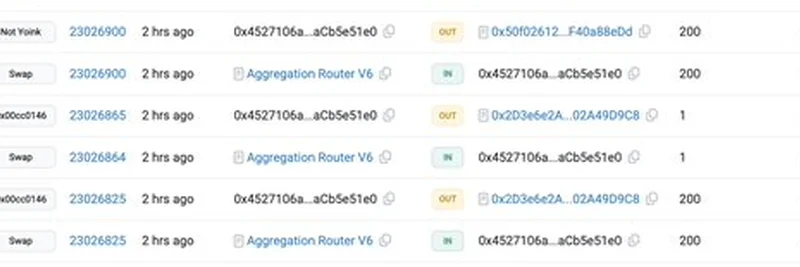Hey there, crypto enthusiasts! If you’ve been keeping an eye on the blockchain world, you might have heard about a recent incident that shook the community. A whopping 401 ETH (that’s over $1 million at current prices!) was snatched in an instant hack involving the Multichain Router V4. Let’s break it down in simple terms and explore what happened, why it happened, and what it means for the future of decentralized finance (DeFi).
What Went Down with Multichain Router V4?
The trouble started when someone forgot to revoke approvals for the Multichain Router V4, a tool used to swap tokens across different blockchain networks. This oversight left the system vulnerable, and MEV (Miner Extractable Value) bots—clever programs that exploit transaction ordering—jumped at the opportunity. Here’s how it unfolded:
- First, the attacker swapped 200 ETH for Wrapped ETH (WETH), but the bots extracted it immediately.
- Next, they tested the waters with 1 ETH, only to see it snatched again.
- Finally, another 200 ETH was swapped and, you guessed it, extracted once more.
The evidence is clear in the transaction logs shared by Chaofan Shou on X. Check out the image below to see the flow of ETH and WETH:
These logs show a series of "IN" and "OUT" transactions, highlighting how the approved WETH was siphoned off in real-time.
Why Did This Happen?
This vulnerability isn’t new. According to the thread, Multichain Router V4 was flagged as risky two years ago. The issue lies in its design: anyone can extract approved WETH or other tokens that lack a "permit" function (a security feature that controls access). Without this safeguard, the router can’t revert unauthorized calls, leaving funds exposed. It’s like leaving your front door unlocked—anyone can walk in!
Back in 2022, Multichain acknowledged similar vulnerabilities and urged users to revoke approvals. However, it seems some users didn’t get the memo, and this recent exploit proves that old weaknesses can still bite if not addressed.
The Role of MEV Bots
MEV bots are like high-speed traders in the crypto world. They monitor the blockchain for profitable opportunities, often executing trades faster than humans can blink. In this case, they capitalized on the unrevoked approvals to extract the WETH. While some might call this a hack, others argue it’s just the bots doing what they’re programmed to do—exploiting inefficiencies.
What Does This Mean for DeFi?
This incident is a wake-up call for the DeFi community. Decentralization gives users freedom, but it also puts the responsibility on them to secure their assets. Here are a few takeaways:
- Revoke Approvals Regularly: Tools like Etherscan can help you check and revoke approvals for smart contracts.
- Stay Informed: Keep up with updates from projects like Multichain to avoid falling victim to known vulnerabilities.
- Security First: Projects need to patch old flaws, and users should double-check their settings.
Some in the community, like @GenerationY4 on X, pointed out that “folks just ain’t ready for decentralization.” It’s a fair point—navigating DeFi requires a bit of tech savvy, and mistakes can be costly.
Looking Ahead
While this hack was a blow, it’s not all doom and gloom. The blockchain space is constantly evolving, with developers working to plug security gaps. For now, staying vigilant and using trusted tools can help protect your funds. If you’re into meme tokens or other crypto ventures, this is a reminder to always prioritize security alongside those fun gains!
What do you think about this hack? Have you checked your own approvals lately? Drop your thoughts in the comments, and stay tuned to meme-insider.com for more blockchain insights!



